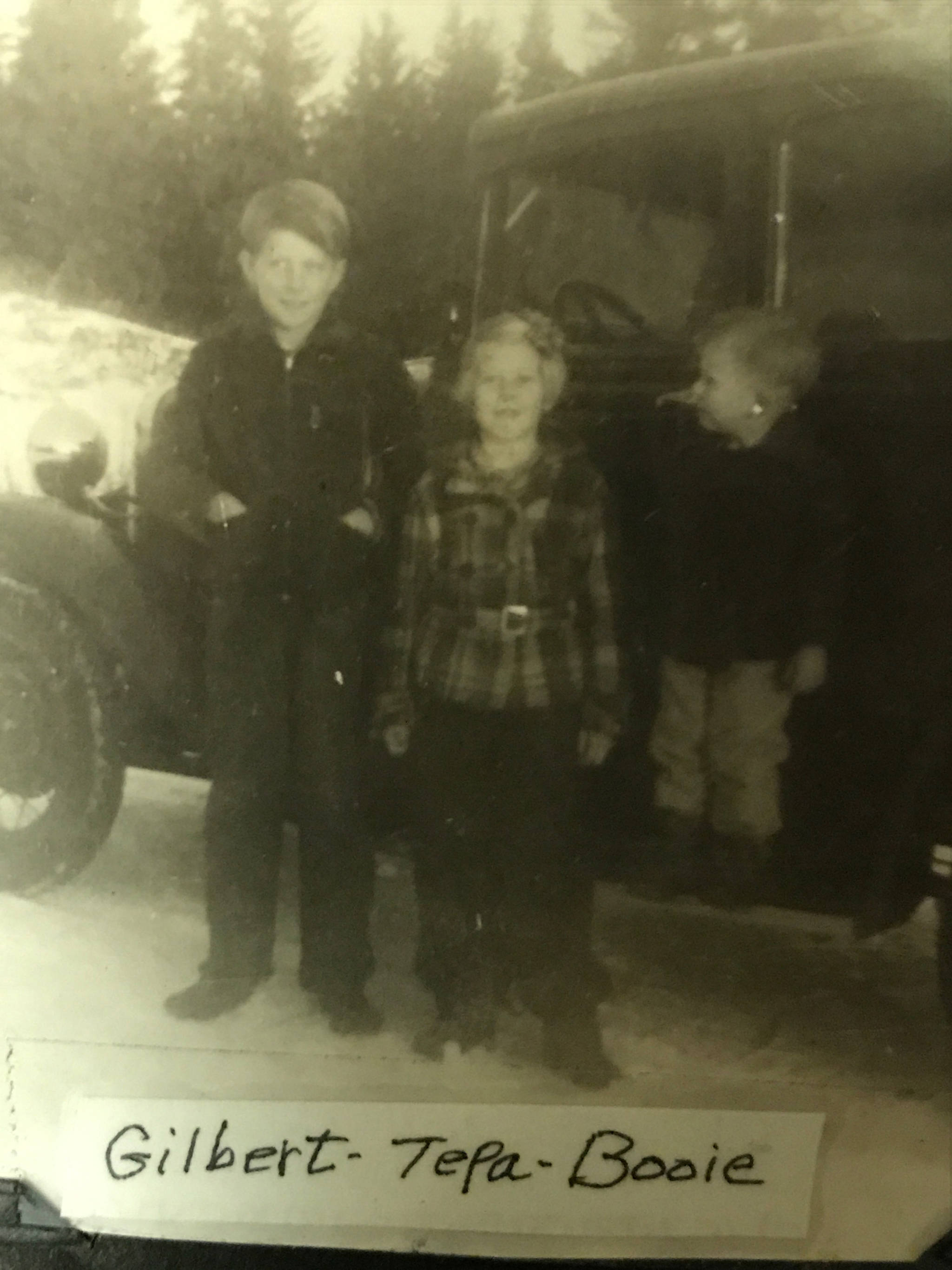Editor’s note: The name of Tepa Rogers’ (nee Hansen) husband, Lawrence Rogers, was incorrect. It has been changed in this version.
On Dec. 16, Larene “Tepa” Rogers, 86, died with family at her side. The loss of this lifelong Homer resident is lightened by memories of a life fully lived and family traditions her daughters Linda Rowe and Anita Critchett of Homer and Judy Fowler-Morris of Fairbanks are determined to continue.
“Mom was actually pretty quiet, but what people don’t know about her so much is that she was really tough and had stamina,” said Fowler-Morris.
Rogers’ parents, Bert and Inga Hansen, came to Alaska separately in the early 1920s, met, married, and made Homer their home. Bert Hansen fished for herring in Kachemak Bay and for salmon with a Bristol Bay sailboat. Inga Hansen worked in a cannery and taught school in Ninilchik and, later, in Homer and helped the Homer Public Library take its first steps. The couple had a fox farm, operated Homer’s first grocery store and, with a fleet of two Model A Ford sedans, ran Homer’s first taxi service.
Nicknamed “Tepa” by the late Lillian Walli, Rogers and her brother Booie — another brother died at a young age — grew up helping with the family’s fishing sites on Kalgin Island. Vegetables from the family garden were stored in a root cellar. Without electricity and refrigeration, moose and salmon were canned. Using a washboard and clothesline was how Rogers learned to do laundry. At 12, she drove taxi when a second driver was needed. Her first job was in a cannery. She went on to work for Arthur and Natalie Hewlett when they opened the Bank of Homer, which was bought by National Bank of Alaska following Arthur Hewlett’s death, and was a cook for Homer’s middle and high school students.
As demands of day-to-day life allowed, Rogers enjoyed sledding down Main Street, bonfires on the frozen surface of Beluga Lake, and dances and pie and box socials. In fact, it was at one of those pie socials that Hansen met Lawrence Rogers. Originally from Texas, Lawrence Rogers came to Alaska in 1947. A visit to Homer convinced him this is where he wanted to settle. In 1947, he began working for the Alaska Road Commission, which became the Alaska Department of Transportation and Public Utilities, and retired in 1978.
After proposing to his bride-to-be, Lawrence Rogers worked hard to prepare his Baycrest-area homestead for his wife.
“She felt like she’d upgraded because on the homestead there was electricity and running water. He would work all day and then go home and work all through the night, determined when they got married, they’d have running water,” said Fowler-Morris.
The couple married on Dec. 11, 1953. In spite of the modern conveniences, however, Rogers continued working hard to care for her family.
“We basically lived off the land. We had all the vegetables from the garden, Dad hunted moose and we all went fishing,” said Fowler-Morris.
Rogers passed her work ethic to her daughters, lessons they recalled with warm laughter.
“Dad would say, ‘Let’s go fishing.’ Then he would wonder what was taking so long, but she was getting food for us to eat and getting us dressed,” said Rowe.
“We didn’t have a choice of staying home,” said Critchett.
“She’s the one that got it all together,” said Fowler-Morris.
Gardening was another opportunity to share her values with her three youngsters.
“Her garden was weed-free,” said Rowe. “We did a lot of weeding.”
Rogers’ daughters also recalled her willingness to take on new challenges. Rowe recalled a moose hunt as an example.
“I was probably about 12 when Mom and I went chasing a moose. We followed it through the woods, through bushes, over the road and then it was time for Dad to be getting home and she didn’t want him to worry about where we were,” said Rowe of returning home before they’d shot the moose. “We were standing in the yard telling him about it and we heard a gunshot. … Our neighbor had shot the moose about 100 feet from where we’d turned around.”
It wasn’t all hard work, however. In 1995, Lawrence and Tepa Rogers were crowned King and Queen Regent by the Pioneers of Alaska.
“It was wonderful for them. They got to share stories with other pioneers who had grown up in other parts of the state and all shared that pioneering spirit,” said Fowler-Morris.
On Christmas Day 35 years ago, burning brush on the Rogers property turned into a picnic. It became a family tradition and grew to include seven grandkids and three great grandkids enjoying hot dogs, hot chocolate and marshmallows. If the weather was cold, the outing sometimes didn’t last long.
“Dad would say, ‘I can’t believe we’re doing this,’ but no way we weren’t going to,” said Fowler-Morris of the annual holiday gathering.
After Lawrence Rogers’s death in 2013, Rogers remained active. She met former co-workers for lunch, continued passing along stories of Homer’s early days, caught a 132-pound halibut on Kachemak Bay at the age of 81, enjoyed an Alaska cruise with her family last year, and was digging potatoes in her garden just a few months ago.
On Dec. 11, the 64th anniversary of her and Lawrence’s wedding, Rogers entered South Peninsula Hospital and died five days later as a rainbow took shape across Kachemak Bay and sunshine flooded the sky.
“She loved, loved sunshine and we’ll be sharing some sunshine stories,” said Fowler-Morris of memories the family will recall during a celebration of Rogers’ life at the Homer Elks Lodge, 2 p.m. Dec. 23.
McKibben Jackinsky is a freelance writer and can be reached at mckibben.jackinsky@gmail.com.



